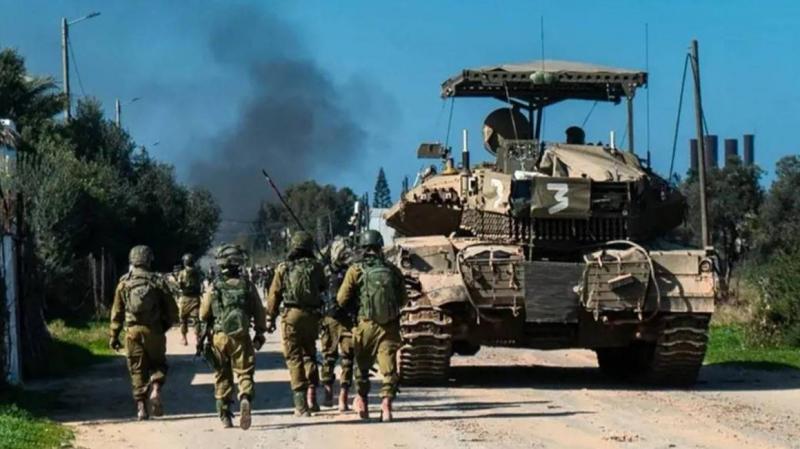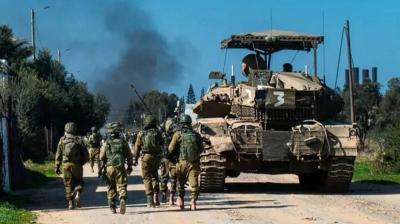The Israeli army announced the elimination of the head of Hamas' office in the West Bank, Yassin Rabi, and Khaled Al-Najjar, a movement leader, during airstrikes carried out in the city of Rafah. The Israeli army acknowledged, early Monday, that it conducted an air strike on the "Tal Sultan" area in Rafah, southern Gaza Strip, justifying this by targeting a "terrorist" compound of Hamas.
Avichai Adraee, spokesman for the army, stated: "Air strikes targeted a compound belonging to the Hamas terrorist organization in Rafah, where senior operatives associated with the organization were present." He added: "The strike targeted operatives who constitute a legitimate target under international law, and was carried out using precise munitions, based on prior intelligence indicating that Hamas operatives were using this area."
He continued: "We are aware of the claims that, as a result of the strike and the fire that broke out in the area, a number of uninvolved persons were injured. An investigation into the circumstances of the incident is underway." Palestinian sources reported that the Israeli army launched three airstrikes on residential neighborhoods in Rafah after hitting the refugee camp, resulting in the deaths of more than 30 Palestinians.
The government media office in Gaza stated that the Israeli army targeted more than 10 UNRWA displacement centers in recent hours. It revealed that the Israeli army used seven missiles in the attack on the refugee camp, emphasizing that "the massacre at the refugee camp in Rafah coincided with hospitals in the area going out of service."
It stressed that the Israeli army had previously considered the targeted areas and displacement centers as "safe zones," yet proceeded to strike them. The civil defense in Gaza reported that the area targeted by the Israeli army in northwestern Rafah has 100,000 displaced persons. It was noted that "many cases of amputations, severe burns, and casualties among women and children have been reported following the massacre at the camp."




